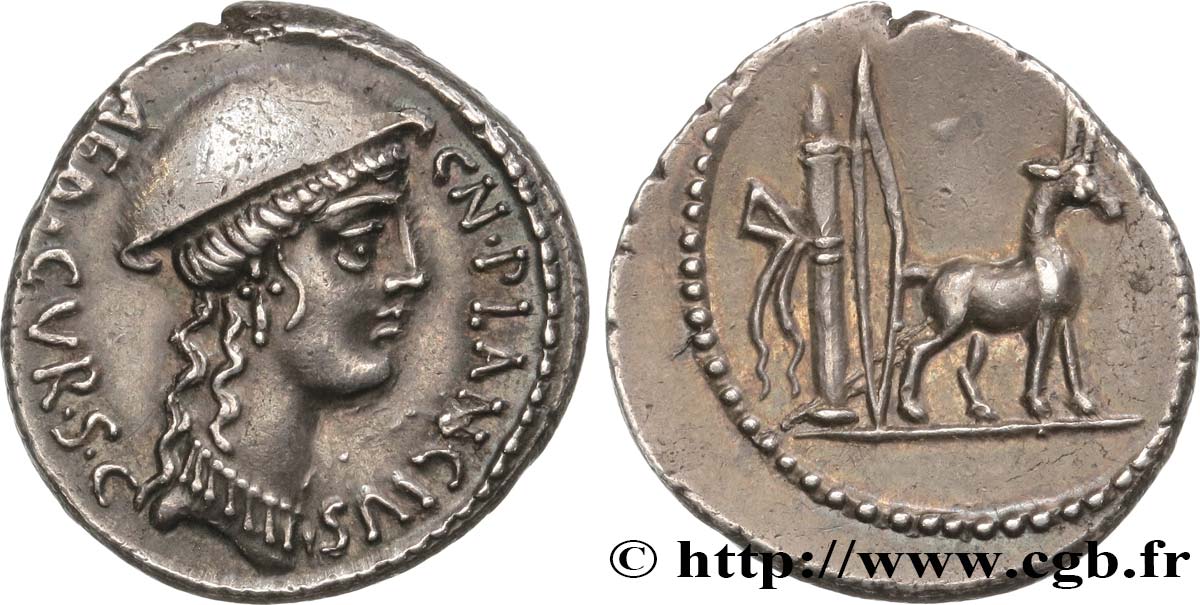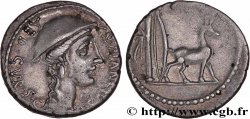brm_533054 - PLANCIA Denier
Not available.
Item sold on our e-shop (2020)
Price : 550.00 €
Item sold on our e-shop (2020)
Price : 550.00 €
Type : Denier
Date: 55 AC.
Mint name / Town : Roma
Metal : silver
Millesimal fineness : 950 ‰
Diameter : 19,5 mm
Orientation dies : 12 h.
Weight : 3,83 g.
Rarity : R1
Coments on the condition:
Exemplaire de qualité exceptionnelle sur un flan ovale, parfaitement centré au droit, légèrement décentré au revers avec les grènetis visibles. Magnifique tête de Diane au droit. Revers finement détaillé. Magnifique patine de médaillier avec des reflets dorés. Conserve la plus grande partie de son brillant de frappe et de son coupant d’origine
Catalogue references :
Obverse
Obverse legend : CN. PLAN[CIVS]/ AED. C[VR. S. C].
Obverse description : Tête de Diane Planciana à droite, coiffée du pétase avec boucle d'oreille et collier.
Obverse translation : “Cnæus Plancius Ædilis Curulis Senatus Consulto”, (Cneius Plancius édile curule avec l’accord du Sénat).
Reverse
Reverse legend : ANÉPIGRAPHE.
Reverse description : Bouquetin crétois à droite ; derrière à gauche arc et carquois.
Commentary
Pour ce type, M. Crawford a relevé une estimation de 99 coins de droit et de 110 coins de revers. Variante avec la petite tête de Diane.








 Report a mistake
Report a mistake Print the page
Print the page Share my selection
Share my selection Ask a question
Ask a question Consign / sell
Consign / sell
 Full data
Full data